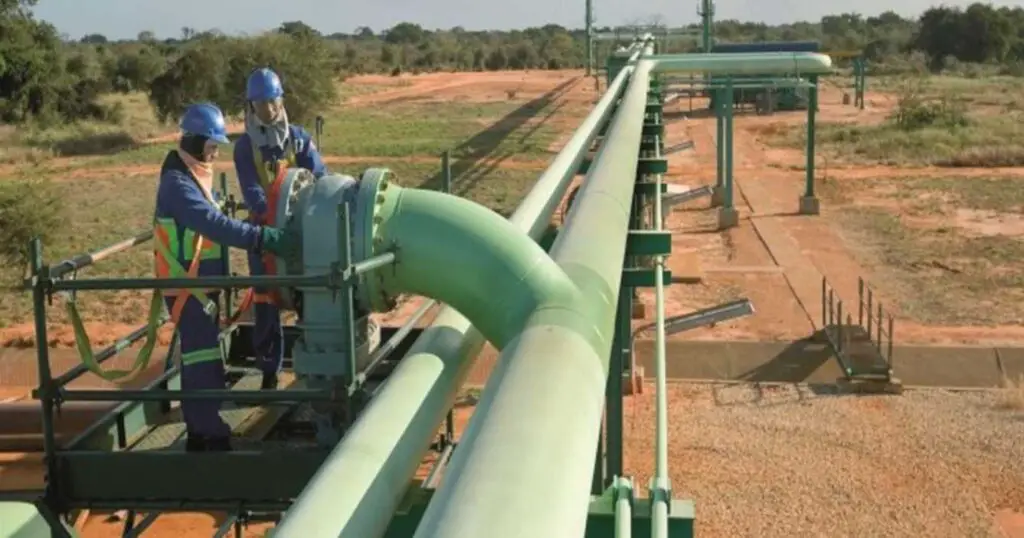The Economic Community of West African States (ECOWAS) boasts of some of Africa’s largest economies, but like many economies of the world, the 15 member states of ECOWAS are facing both endemic and global challenges that could undermine the region’s economic growth in in 2023.
While two years ago in 2020, before the global pandemic struck, a majority of ECOWAS countries were enjoying the commodity boom with the region’s three of its largest economies – Nigeria, Ghana, and Côte d’Ivoire – accounting for one-fourth of Africa’s GDP.
Unfortunately, short of a change in the global economic projection, it will be a challenge for these West African countries to replicate the pre-pandemic growth. The global economic forecast paints a depressed economy in2023 and at best sluggish growth for more diversified economies, spilling over from the after math of the pandemic, the ongoing Russia-Ukraine war and widespread inflation.
A global analysis released by the Institute of International Finance shows very little growth projections for 2023; a meager global economic growth rate of just 1.2% is expected for the year 2023.In the United States, for example, the strained job market that was so characteristic of 2022 is feared to carry on well into 2023 and an overall slowdown in business activity is expected, even speculations of a recession are not far fetched.
Also Read: Sectors that will grow West Africa’s 15 economies
The World Economic Forum notes that in 2022, inflation grew and business activity, especially in the eurozone and the United Kingdom, continued to shrink.
The Organisation for Economic Cooperation and Development (OECD) Chief Economist noted that, “We are facing a very difficult economic outlook. Our central scenario is not a global recession, but a significant growth slowdown for the economy in 2023, as well as still high, albeit declining, inflation in many countries.”
But despite the global economic outlook, ECOWAS is confident that it’s member states will ride this gloomy economic storm to emerge stronger and better positioned to carry on with its transformational agenda in the region.
Also Read: ECOWAS joint food security strategy, lessons to learn
With Nigeria leading the way, ECOWAS is positioning itself to stave off the negative effects of the global economic slowdown.
Nigeria is Africa’s largest economy contributing an impressive18.3% of all of Africa’s economic output.
The country is also the most populated in Africa, and should its current trajectory persist, it is expected that by 2050, the population in Nigeria will reach 400 million citizens, that is more people than the entire United States of America.
To sustain such an enormous population, Nigeria, and the rest of ECOWAS must record and sustain positive economic growths in 2023 and beyond.
In October 2022, ECOWAS Second Extraordinary Session that was held in Lomé, Togo, the community adopted its 2023 draft Budget of US$30,500,000.
The Speaker of the ECOWAS Parliament, Sidie Mohamed Tunis, reassured stakeholders that, “…we are very much aware of the economic challenges facing our people…the activities we will carry out in 2023 will consist of contributing to mitigate these challenges.”
For this reason, the speaker also called for planning and building what he described as “…an efficient and pragmatic financial management framework, focused on the well-being of citizens.”
The ECOWAS Commission, in November 2022, identified four priority areas that the community will focus on over the next four years; enhanced peace and security, good governance, deeper regional integration and inclusive and sustained development. The last objective has been a key priority for ECOWAS since it was created in 1975 with the 15 founding member states coming together to promote economic cooperation. With such a large number of members, ECOWAS countries also have Africa’s largest population and it only follows that ECOWAS is responsible for security measures and peacekeeping efforts across the region.
The 15 members of the Economic Community of West African States (ECOWAS) are Benin, Burkina Faso, Cabo Verde, Cote d’Ivoire, The Gambia, Ghana, Guinea, Guinea-Bissau, Liberia, Mali, Niger, Nigeria, Senegal, Sierra Leone, and Togo.
Also Read: ECOWAS unveils new roadmap for single currency launch
Opportunities for growth
The commission had particularly invited partners to come on board to help ECOWAS operationalize a Maritime security Architecture, National Early Warning and Response Centers and building rapid response capacity.
Omar Touray, the ECOWAS Commission President, said the regional block is determined to deepen regional integration “through the promotion and enhancement of intra-community trade, free movement of people and the monetary Union.”
“Specific deliverables for the next four years under this pillar will include; reducing tariff and non-tariff barriers, a regional payment system, introduction of EC-Visa, implementation to concrete border projects under the ECOWAS Cross Border Programme among others.”
The commission, will from 2023, also invest in food security by increasing in the stock of its regional food security reserve and the implementation of the ECOWAS rice Offensive Action Plan (2022-2025) to reduce dependence on imports.
However, the success of these plans is hinged on how ECOWAS navigates a depressed global economy and how it handles some of its member states that have suspended constitutional and democratic governance such as Mali, Burkina Faso and Guinea.




